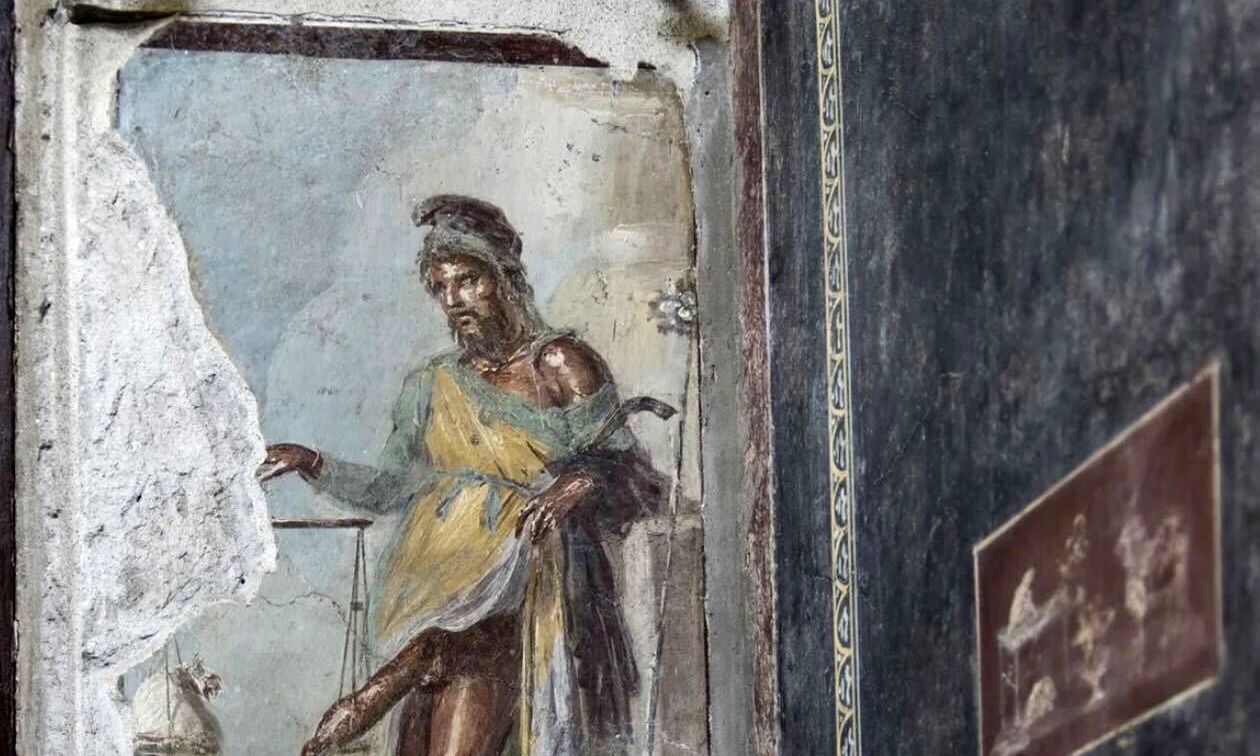Priapus, the god of fertility, was also thought to ward off evil Courtesy of Pompeii Parco Archeologico via Instagram
A vast, historic house adorned with erotic frescoes has reopened in the ancient city of Pompeii following a 20-year refurbishment. The House of the Vettii—which was engulfed alongside the rest of the city by volcanic ash spewing from Mount Vesuvius in 79AD—was unveiled on 10 January by Gabriel Zuchtriegel, the director of Pompeii archaeological park.
The home, thought to have been constructed in the second century BC, was owned by Aulus Vettius Restitutus and Aulus Vettius Conviva, who became rich by selling wine after being freed from slavery.
A fresco at the entrance depicts Priapus, the god of fertility, with a huge penis resting on a weighing scale also loaded with money; the mural reflects the owners’ wealth while Priapus was also thought to ward off evil. In the dining room, known as the Hall of Pentheus, a fresco depicts the Greek hero Hercules as a child, crushing two snakes.
“They [the owners] evidently tried to show their new status also through culture and through Greek mythological paintings,” Zuchtriegel told the Associated Press (AP)."'It's all about saying, 'We've made it and so we are part of this elite' of the Roman world.'”
Stefania Giudice, the director of fresco restoration, revealed also that paraffin was used to try and conserve the frescoes over the years but this resulted in them becoming “very blurred”. The process caused layers of wax to form on the walls, which preserved the frescoes.
"This is the conclusion of a complete restoration of the most important house in Pompeii… the house was closed for almost 20 years. In the meantime the problems, mainly relating to damaged roofing, have worsened. In 2015 we started new planning of both the completion of the roofs—of the peristyle sector—and maintenance of the roofs of the atrium and service area sector. The project also involved [restoring] all the wall and floor decorations. The bright colours and a myriad of details covered by the layers of wax during the 20th-century restoration have re-emerged," Arianna Spinosa, Pompeii's director of restoration work, tells The Art Newspaper.
The house renovation project is the latest phase in the revamping of Pompeii. Late last year archaeologists at the ancient site unearthed a series of rooms in a residence belonging to a middle-class family whose household items were buried in the volcanic debris.

